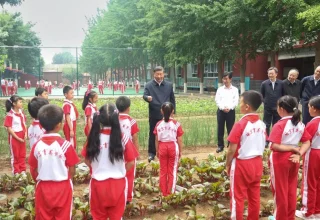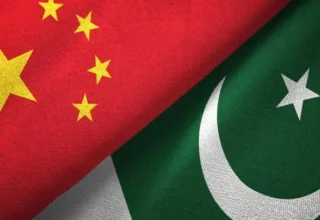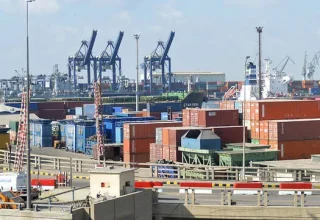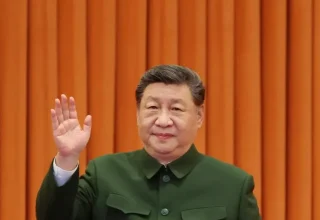The Chinese Belt & Road Initiative (BRI) has entered into its tenth year, making a new history of world class infrastructure development, regional connectivity, integrated transport, economic and sea corridors in the member countries.
According to the Chinese official data (December 2022) BRI investment in 2022 was unusually dominated by private sector enterprises, including CATL, Alibaba and Changan Automobile Co while construction contracts were dominated by state-owned enterprises (SOEs).
Moreover, Chinese engagement through financial investment and contractual cooperation for 2022 in the 150 countries of the BRI was more than USD 69.8 billion based on over 200 deals. Cumulative BRI engagement since the announcement of the BRI in 2013 is USD 962 billion, about USD 573 in construction contracts and USD 389 in non-financial investment in which even Changan substantial FDI played an important role.
Moreover, transport-related engagement is an important actor to provide the means to trade between China and the BRI countries. Accordingly, China has invested in and constructed projects in road, rail, aviation, shipping and logistics across the world.
China’s BRI continues to play a pivotal role in the auto industry by facilitating collaboration and investment opportunities among auto-related stakeholders and markets participating in the BRI. There has been an increase in autos-related investment due to the creation of new BRI partnerships (Indonesia, Democratic Republic of Congo, Pakistan and Argentina).
It seems that electric vehicle (EV) manufacturers and mining companies from China heavily invested in BRI countries and established a durable EV supply chain, as highlighted by strong growth in investment in Argentina and Chile for lithium, Indonesia for nickel and Mozambique for graphite.
Chinese automaker Changan Auto will invest $285 million in a facility in Thailand to produce 100,000 electric vehicles annually, according to the country’s Board of Investment (BOI). The Co aims to market EVs in Thailand, Southeast Asia and Australia.
Changan Automobile, a leading Chinese car manufacturer, has recently announced it will invest 9.8 billion baht (US$ 285 million) in Thailand, to set up its first right-hand drive electric vehicle (EV) production base outside China.
Moreover, Changan Automobile Group, China’s fourth-biggest automaker by sales volume, will invest 30 billion Yuan ($4.7 billion) in research and development (R&D) over the next five years. The manufacturer, which counts Chongqing Changan Automobile Co Ltd among its listed subsidiaries, has spent 5 percent of annual revenue from 2016 to 2020 for R&D.
Interestingly, Changan is on a mission to build the vehicles that people want and need. By producing efficient, safe, stylish and affordable cars, Changan has earned the business of many satisfied customers, and the admiration of many happy employees in the BRI member countries around the globe. It is even a popular brand in Uzbekistan and Azerbaijan.
Most recently, it unveiled the hybrid technology IDD, which stands for intelligent dual drive, and three new hybrid models. By 2025, the group’s sales will reach 4 million vehicles a year. It is hoped that sales of Changan-branded vehicles will reach 3 million units and NEVs will account for 35 percent.
To conclude, Chongqing, already the size of the Bangladesh economy, has succeeded to double its digital economy to $156 billion by 2022 driving 60 percent of GDP growth. 70,000 5G base stations by 2022 while then more than double to 150,000 by 2025 would be a great achievement. The role of Changan in the GDP of Chongqing is substantial which is a good omen for automobile development.
Moreover, Changan Automobile Co has completely transformed the concept of cheap, smart and modern EVs vehicles in the BRI countries. Thus its role in terms of FDIs in the automobile sector in the BRI countries is on the rise which is good omen for the investors and consumers alike.











































